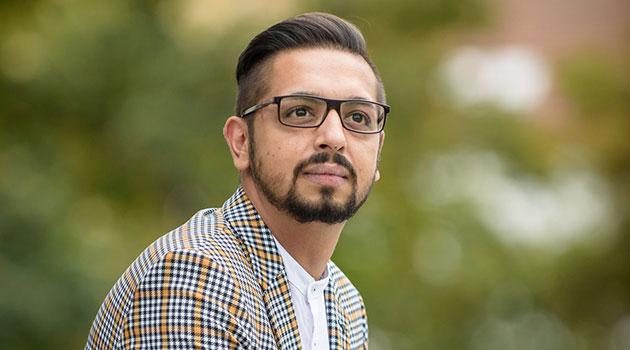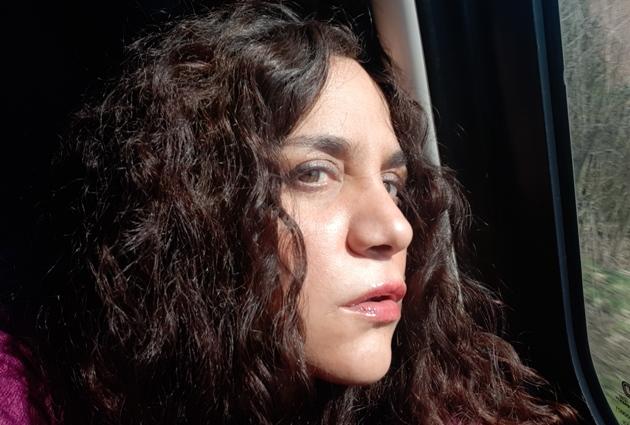David Tišer tells Romani actor he has given Czech society a product full of stereotypes - and no explanation why

The director of the ARA ART organization, David Tišer, has written an open letter to the Romani singer Jan (Honza) Bendig who, along with his manager Lukáš Rejmon, is facing criticism for his role in the television series “Ďábelské cikánky” (“Devilish Gypsy Women”). According to critics, the series is derading to the Romani community and contains low, vulgar humor.
In response, Bendig has decline an invitation to discuss the show on-camera and, in a statement on social media, has attacked Romani organizations and, indirectly, the ARA ART organization, which convened the celebrations of International Romani Day this year during which a discussion was held that opened up the critique of the series. News server Romea.cz is publishing Tišer’s open letter here in full translation:
Dear Honza,
I have to admit that I am a bit regretful that after rather a long time we are in contact with each other during a situation that has become as exacerbated as this one is. Be that as it may, I consider it important to respond to some of the things you have mentioned in your statement about the current discussion that was lanuched by the public criticism of “Ďábelské cikánky“. I am aware that your statement did not mention the name of our organization, ARA ART, but it is clear (and, after all, Romea.cz has also noticed) that some of your reproaches are aimed either directly at us, at the events we organize, or at the people with whom we collaborate. It seemed silly to me, therefore, to write a general response and I have preferred to choose this personal, albeit public, form of answering you.
This was the seventh year we have organized celebrations of International Romani Day. I believe you know this because you yourself have performed in those celebrations more than once. This is an annual event of several days’ duration that, in addition to a main gala evening, also includes an auxiliary program, and therefore each year there are discussions about current events. This year we had originally planned to focus one of those discussions on the subject of how Romani culture has developed over time. Through Lukáš, i.e., your manager, I invited him, you, and anybody else from your creative team to participate in this debate. It was clear that the subject of the “Ďábelské cikánky” series would absolutely come up, for sure. I wrote that to Lukáš and I simultaneously proposed that you could invite other guests to the debate. Lukáš briefly and politely declined. We decided, therefore, not to hold that discussion, since representatives of all contrasting opinions would not be present, and instead we contacted our partner organization, Slovo 21, which has long been focused on the presentation of Romani culture in the media, to organize the discussion as part of the celebrations. They took up the challenge and as a discussion subject suggested the theme of “Criticism of Romani Music”. The debate, however, ended up revolving around your series all the same, because there is no doubt that both its audio component and audience impact are related to the subject of Romani music.
You have written that the series has been broadcast for three years and that the public has begun to take an interest in it “now, suddenly”. Yes. Originally it was just an amateur Internet joke intended primarily for a Romani audience. Whatever we all may have believed about the humor there and its level, there was no need to express our opinions about it publicly. Several months ago, however, you gave the series to a television channel. I think each adult person with a public voice bears full responsibility for what they do with it. You all have given the majority society a product full of stereotypes, without giving an explanation as to why. None of us will ever believe that the majority-society viewers of the TV Barrandov channel have understood that because you used the “word spelled with a k” in the title (Cikánka), then what is being shown there has nothing to do with “Romani guys and our community”. Moreover, I am surprised that if you are putting your own skin in the game on television, as they say, that you aren’t counting on criticism of your work happening in public too.
In one matter, however, we probably agree: Just like you, I too genuinely regret the wave of absurd homophobia that has arisen during the discussion of the series. No emotional mood can excuse insults, especially not those related to somebody’s difference, whether that be about their sexual orientation, skin color, or nationality. It is necessary to admit that even those who actually have something substantive to say still have yet to learn that lesson. I am pleased when such people reflect on that. Those who have nothing substantive to say and who just engage in insults are much worse. The low level of this discussion further reduces the seriousness of this entire subject.
It seems, however, that you too have become caught up in this emotional merry-go-round that sparks the need to insult people, or at least to libel them. I do not otherwise know how to explain the remarks you have made about Romani organizations “that get such big subsidies for their online festivals from state funds […] that are watched by 100 people”. I consider that statement to be so fatuous that there is no point in analyzing it in great detail. The broadcasts online of our Celebrations of International Romani Day, as of this writing, have been accessed by 43 000 unique viewers. That is a respectable number for a cultural event that is not commercial entertainment. The video recording of the discussion that we have been speaking of here has been seen by almost 3 000 viewers, as of this writing. That’s just to set the record straight, though. This is not really about “likes” and other numbers online. Those numbers don’t help assess the quality of artistic performances, or debates, or of contributions to culture overall. We both know that programs that are of the “celebrity parade” type are far more popular, usually.
In conclusion, I would like to say that I am glad to see, against the background of this discussion, what a great hunger there is among people to see Romani subject matter in art. That indicates to me that our work makes sense. We decidedly will continue it.
We will be glad of each and every person who joins our efforts.
I wish you all the best.
David
